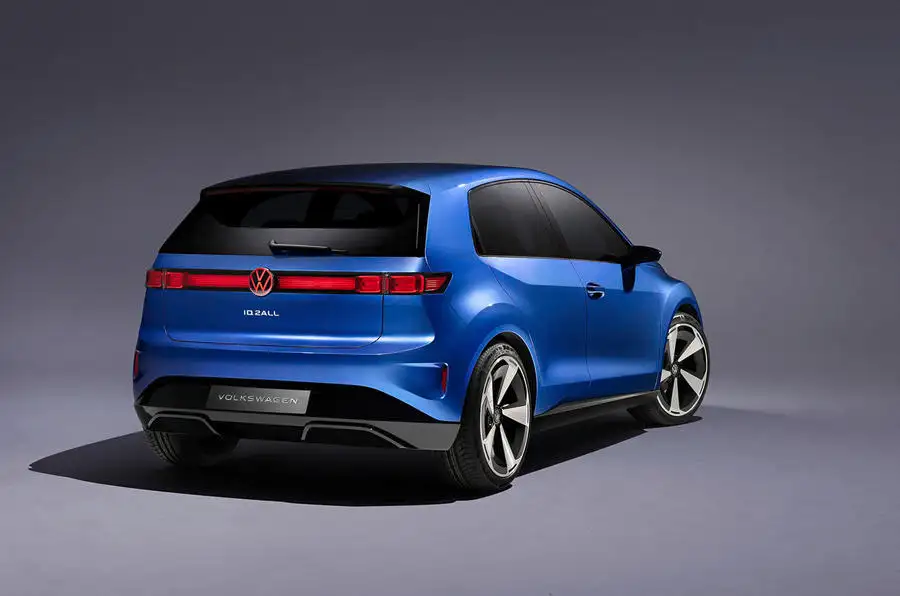VW counters “agile” Chinese car makers by cutting lead times but won’t launch any more cars with “thousands of faults”.
Volkswagen is looking to cut its development times of new cars from 54 months to 36 months in order to keep up with the quicker pace of development of Chinese rivals.
Speaking at the Munich motor show, Volkswagen technical boss Kai Grunitz said the upcoming Volkswagen ID 2 was one of three pilot models working to the shorter 36-month development cycle. The first design sketches of that car were done in December last year and VW wants to have it on the road by the end of 2025.
“You see with Chinese competitors that it’s doable,” said Grunitz about the shorter development times. “We have concrete ideas about how to do this.”
Grunitz said the shorter development times will require VW to build new simulation tools and ways of validating development work. He added that the development cycle can be shorted by removing various on-road validations of simulation work, reducing the number of test cycles and cutting the likes of cold-weather testing from two or three winters down to one.
The shorter development cycles bring “risk”, said Grunitz. “The risk is that you don’t know where you’ll end up when you start the development process. In Germany, we have clear lines about what we want, especially at Volkswagen, and we don’t want to go into a development process with any risks.
“But in any enterprise, there are risks. The competitors in China start [development] and are agile. If something comes up, they find a solution. That’s what we have to do in Germany. It’s a different approach. But it’s possible, really possible.”
Grunitz highlighted BYD as a Chinese competitor he respects the most in building quality cars in shorter timeframes. “They have a real platform strategy, low costs, a really good battery and are all over the world building up some good sites.”
VW will also work more closely with suppliers to integrate their technology and ideas into its models rather than “wanting to develop everything on our own”. Grunitz said: “Now we’re developing interfaces with ideas from our suppliers.”
Grunitz also acknowledged there are further risks around ensuring the quality of the cars is consistent and at a standard expected by VW customers, particularly after well-publicised problems with the eighth-generation Volkswagen Golf and Volkswagen ID 3, which were built using the longer, 54-month development time.
“That’s exactly the challenge. We won’t bring any cars to the road like you’ve seen with the Golf 8 or ID 3, with thousands of faults coming to our customers. The question is how we reduce test cycles and stay within the quality.”
VW will also look to not start from scratch every time it develops a car but instead look to carry around 70-80% of a model forward between generations and “change 20% to get to a new vehicle with new functions. That’s the key to success. It’s not done yet but we know what to do.”




